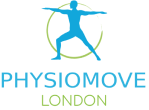Stress is something that many of us encounter at some point in our lives – from our everyday responsibilities like juggling family and work to more serious issues such as dealing with financial worries or traumatic events. It kick starts the ‘fight or flight’ instinct within us and can therefore actually help us deal with difficult or threatening situations by releasing hormones that enable us to respond appropriately to it.
However, if we experience continual stress and pressure over a long period of time, it can manifest itself and lead to a number of health problems. These can include lack of energy, nervousness, insomnia and an increased risk of depression.
But stress, in fact, has the potential to effect every part of our bodies – our respiratory system (chest pain, high blood pressure, increased risk of a heart attack and stroke), digestive system (increased risk of type two diabetes, acid reflux, heartburn and upset stomach) and immune system (weakened by stress making you more susceptible to infections and viral illnessess).
As physiotherpaists, we often see patients who are experiencing musculoskeletal pain, which is another common side effect of stress. When the body is under stress, our muscles tense up and don’t get the chance to relax. When our muscles are taut over a long period of time, it can lead to chronic back, shoulder and neck pain.
This can trigger other stress-related problems such as jaw pain, headaches – in particular tension headaches and migraines – as well as a change in posture caused by tense, elevated shoulders and hunching our head and neck forwards. The more tension people experience the more stress they can feel, making the musculoskeletal problems even worse over time.
This type of pain can have a serious effect on their bodies and their lifestyles. We can work with patients in this situation to help identify the root of the pain and put together a tailored treatment programme to help alleviate them of their discomfort.
This may include helping with releasing muscle and joint tension through manual techniques, such as massage and joint manipulation, as well as stretches and exercises to correct the alignment of the body.
However, if you are experiencing any kind of pain caused by stress, what is vital is that you get to the bottom of the causes of your stress and find ways to manage it. These can include confiding in your loved ones, exercising, eating well, relaxation techniques such as meditation and finding a hobby you enjoy.
These techniques, along with dealing with the physical issues you are experiencing, can go a long way to ensuring your stress is managed to get you back on track.


